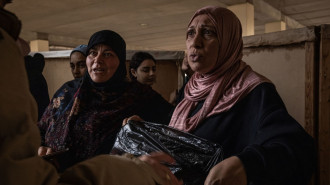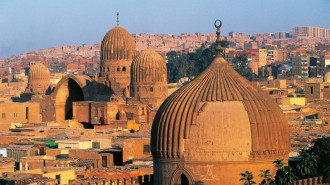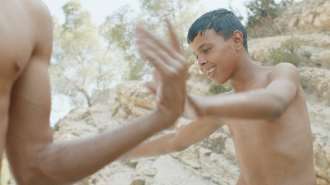'One God within modernity': Islamic Theology in the Turkish Republic
Philip Dorroll’s Islamic Theology in The Turkish Republic makes a bold claim, while we traditionally talk about Islamic schools of thought in terms of 4 main scholastic schools in Sunni Islam and 3 in Shi’ism, Dorroll proposes we consider Turkey as having its own unique school of thought within Sunnism.
Often the Islamic experiences of Turkey are overlooked because it’s not an Arab country and it is assumed Arab issues are also Turkish ones, which has led to both generalised presumptions about Islam in Turkey and overall neglect from religious studies scholars.
The core of modern Turkish theology, Dorroll suggests, “Islamic theology in the modern Turkish language... revolves around the question of what it means to believe in the One God in the context of modernity.”
"Islamic Theology in the Turkish Republic will become a key study on Turkey and also be used in comparative frameworks examining the religious traditions in other countries. The book is not long but it is packed with insight and will surely become the go to work on Turkish religion"
A thematic book organised by sections on origins, nation, god, humanity and futures, Islamic Theology takes us from the late Ottoman period up until 2019. Theology in Turkey is thriving, “At the end of the 1980s, only nine faculties of theology existed in Turkey.
In January of 2019, according to the head of the Diyanet [Turkish religious ministry] Ali Erbas, there were [now] 105.” The rise in theological colleges has also facilitated a gender revolution with 60% of those enrolled being women, since the AKP party took over there have been more women appointed to senior positions within Turkey’s religious establishment including positions like vice mufti in Istanbul.
The growth in women’s involvement in religious institutes stems from the state’s policy, which takes into one of the unique characteristics of Turkish theology, which is that it is shaped by governments of their day.
|
The Turkish Republic is a secular state that follows the laicite model, which not only demands the state can have no religious character itself or be controlled by specific religious domination, but also the state has total centralised control over religious institutions and can define public religious behaviour in terms of its impact on public order.
The control of public religious life in Turkey falls under the country’s religious ministry, the Dinyanet, which was set up in the early years of the republic. While this is a peculiar feature of the Turkish Republic, the centralising control of religious theology is a distinctly Ottoman feature that goes back to the beginning of the Ottoman state. Total centralised control over theological schools by the state is unusual in Islamic history, most states either had no control or had some control over some institutes in the middle ages.
From the 19th century onwards Turkish theology became concerned with the decline of the Ottoman Empire as well as new ideas coming from Europe. Many sought to reform the Islamic tradition to take into account modern science and philosophical ideas from Europe including ideas of human rights, democracy and freedom.
A major theme for Turkish scholars was a distinction between essential and non-essential beliefs and practises- between what could be changed and what could not be changed. Many also looked outside traditional theological frameworks and began incorporating findings in sociology to help construct a new theology.
The tendency to look towards the social sciences as well as focus on concepts such as the scope of human freedom under state patronage is what gives Turkey its distinct theology. It was during the search for a new theological approach that modern Turkish thinkers rediscovered the works of a 10th-century Islamic theologian Abu Mansur A-Maturidi, what attracted them to him was, “[he] defended the bases of traditional Sunni belief, but sought to do so in a way that was not dependent on irrational submission to religious tradition.”
His rational approaches enabled a spirit of inquiry, Turkish thinkers were looking for, moreover, Al-Maturidi was born in Central Asia, which in Turkish nationalism was also the origins of the Turks and so he could also serve as a nationalist icon. Al-Maturidi’s approaches were expanded upon and methods systematised across Turkey, “According to the Turkish Council of Higher Education, since 1987 some eight-nine master’s and doctoral theses have been written concerning Maturidi theology.” This is in addition to countless other publications in Turkish on his work.
"Getting into the character of Turkish religious life, its contradictions, tensions and conflicts gives us critical insight into life and politics of the country"
The state patronage of theology has its limits, which is it is dependent on the wishes of the ruling party of the day. When the AKP party came to power in the 2000s with the slogan “nobody is free until everybody's free,” there was initially a greater diversification and pluralisation of Turkish theological life. New areas seeking to explore the expansion of personal freedom, minority and women rights and dissenting opinions flourished.
But even this had its limits as Dorroll points out, the rule of the AKP turned more authoritarian and the closing down of dissenting opinions became the norm in the 2010s. For Dorroll the limits of liberation offered by the AK party could be explored through the prism of LGBTQI+ positive theology, many same-sex rights groups initially welcomed the AKP coming to power. Their talk of diversification and liberations encouraged them to think the expansion of gay rights was on the horizon, in 2008, there was a buzz in the Turkish press about new religious interpretations, which affirmed LGBTQI+ rights and the divine love and acceptance of non-straight people.
However, these hopes were dashed when the AKP reacted badly to the suggestion of a queer-friendly theology and party officials would increase their uses of homophobic rhetoric. The AKP’s harsh stance shut down the notion of a wide acceptance of such an interpretation and given the state’s controls on religious institutions, it leaves it unexplored.
Philip Dorroll’s book comes to us at a critical time, despite being a highly globalised place with millions of tourists flocking to it every year, Turkey remains a misunderstood place. Getting into the character of Turkish religious life, its contradictions, tensions and conflicts give us critical insight into the life and politics of the country. I think Islamic Theology in the Turkish Republic will become a key study on Turkey and also be used in comparative frameworks examining the religious traditions in other countries. The book is not long but it is packed with insight and will surely become the go-to work on Turkish religion.
Usman Butt is a multimedia television researcher, filmmaker and writer based in London. Usman read International Relations and Arabic Language at the University of Westminster and completed a Master of Arts in Palestine Studies at the University of Exeter.
Follow him on Twitter: @TheUsmanButt
![Islamic Theology in the Turkish Republic [Edinburgh University Press]](/sites/default/files/styles/image_345x195/public/2021-11/MicrosoftTeams-image%20%2823%29.png?h=19516960&itok=FzYEIZzA)
![Palestinians mourned the victims of an Israeli strike on Deir al-Balah [Getty]](/sites/default/files/styles/image_684x385/public/2024-11/GettyImages-2182362043.jpg?h=199d8c1f&itok=xSHZFbmc)


![The law could be enforced against teachers without prior notice [Getty]](/sites/default/files/styles/image_684x385/public/2178740715.jpeg?h=a5f2f23a&itok=hnqrCS4x)
 Follow the Middle East's top stories in English at The New Arab on Google News
Follow the Middle East's top stories in English at The New Arab on Google News


